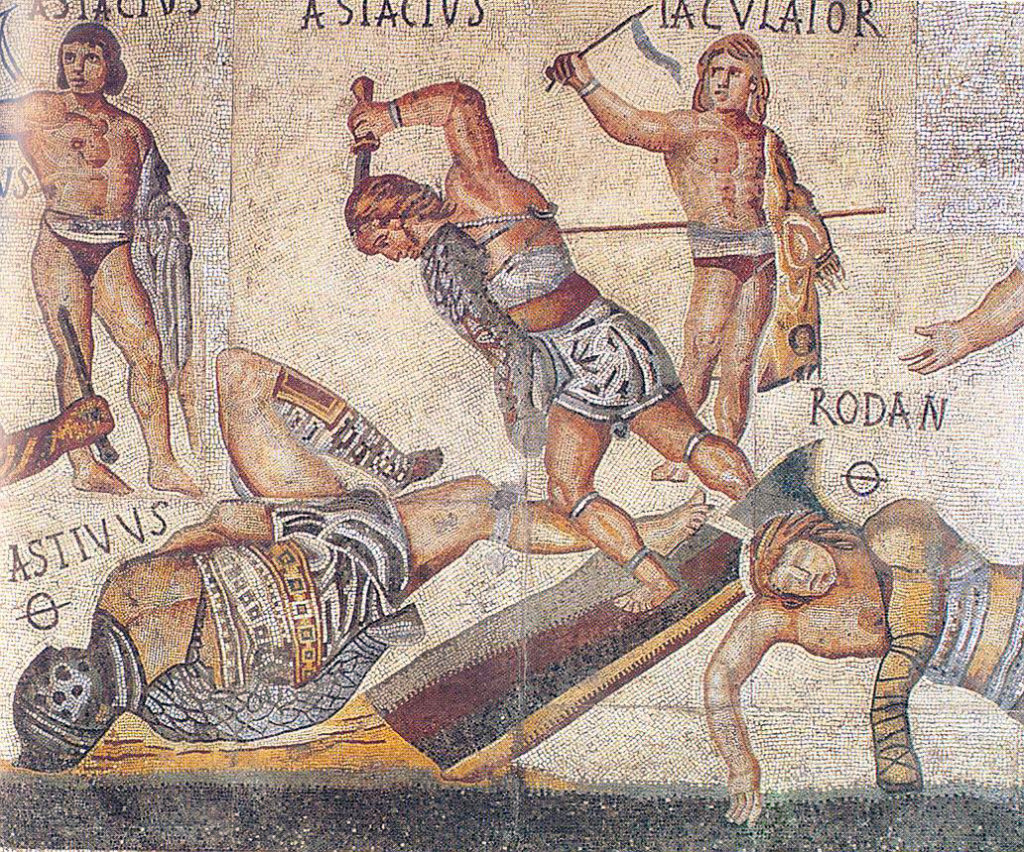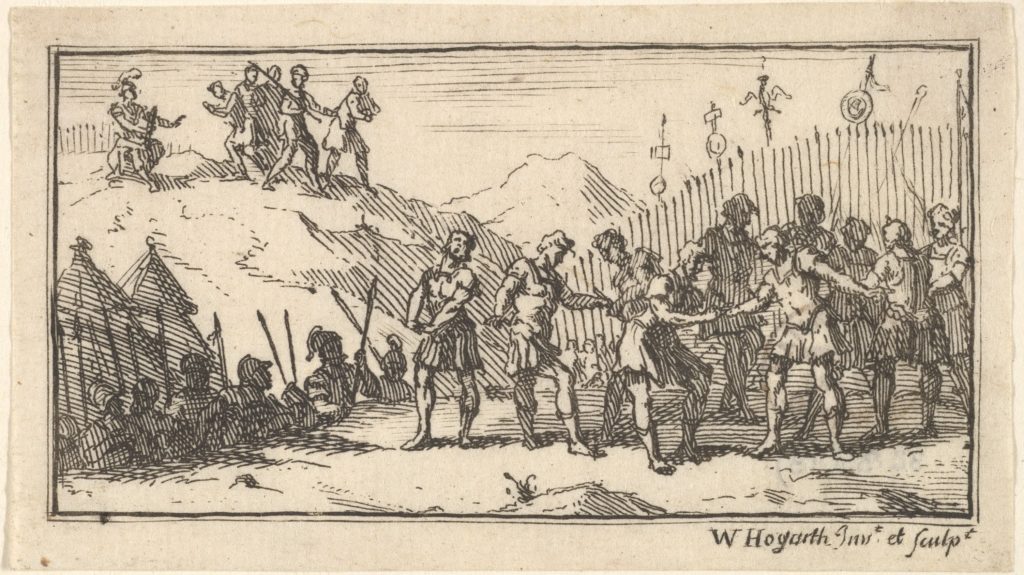Last updated on March 8th, 2023 at 05:31 am
It’s no secret the Roman Republic and Empire is one of the most fascinating and well-documented topics in history. With a rich and storied past, there are countless books on the subject to choose from.
So, what are the best books on Roman history? We’ve compiled a list of some of our favorite titles to get you started. Enjoy!
SPQR by Mary Beard
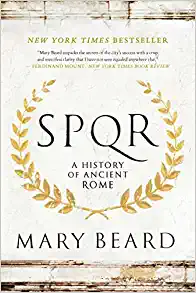
SPQR is a breath-taking, edge-of-your-seat historical account that will change how you think about ancient Rome and its place in history.
An intricately researched Roman history book with lavish detail but without technical jargon.
It’s an entertaining read while also providing invaluable insights into how a shabby Iron Age village became the undisputed hegemon of the Mediterranean.
Ten Caesars by Barry Strauss
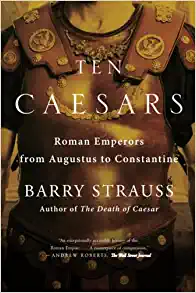
In Ten Caesars, Barry Strauss tells the story of the rise and fall of the Roman Empire through the lives of ten of its most famous rulers.
Beginning with Julius Caesar and ending with Constantine, Strauss paints a broad picture of Roman history that is both fascinating and complex.
While each emperor has a unique story, Strauss also highlights the common themes that link their lives together. Through their stories, we see the machinations of politics, the power of personality, and the importance of military strength. By turns gripping and enlightening, Ten Caesars is a must-read for anyone interested in Roman history.
The Fate of Rome: Climate, Disease, and the End of an Empire by Kyle Harper
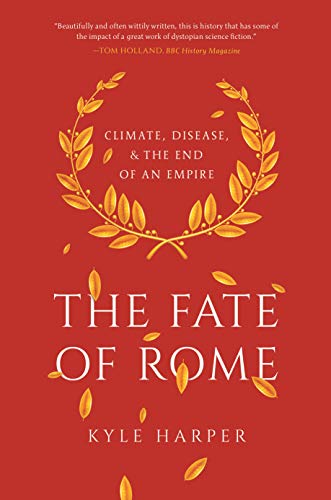
We all know the story of the fall of the Roman Empire. Historians have attributed its decline and eventual fall to many factors, including overreliance on slave labor, government corruption, and military overstretch.
However, in his book The Fate of Rome, Kyle Harper presents a compelling case that climate change and disease played a significant role in the Roman Empire’s collapse.
Through an analysis of historical data, Harper shows how unusually wet and cold summers led to widespread crop failures, hunger, and unrest. At the same time, new diseases were introduced to the empire through trade and travel, exacerbating the problem. The result was a perfect storm that brought down one of the most powerful empires in history.
While climate change and disease may not be the only factors behind Rome’s fall, they were undoubtedly contributory factors that should not be ignored.
The War That Made the Roman Empire: Antony, Cleopatra, and Octavian at Actium by Barry Strauss
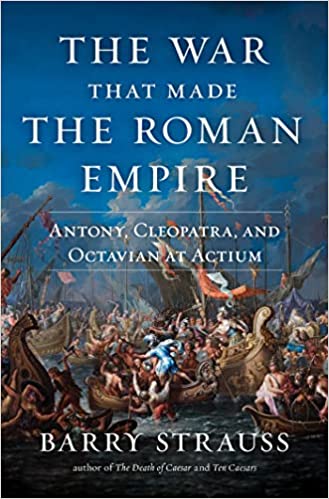
Barry Strauss’s The War That Made the Roman Empire: Antony, Cleopatra, and Octavian at Actium is a fascinating account of one of the most pivotal moments in Roman history.
In 31 BCE, Mark Antony and Cleopatra’s forces met those of Octavian at the Battle of Actium, with the fate of Rome hanging in the balance.
Through meticulous research and clear writing, Strauss brings this dramatic clash to life, showing how Octavian’s victory would ultimately lead to the formation of the Roman Empire.
While The War That Made the Roman Empire will be of interest to anyone with a passion for history, it is essential reading for anyone who wants to understand how Rome came to dominate the world.
The Roman Way By Edith Hamilton
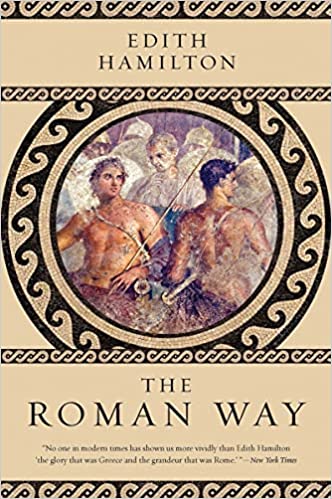
Edith Hamilton’s The Roman Way offers readers a fascinating glimpse into the history and culture of Ancient Rome. Through biographical sketches, Hamilton chronicles the lives of some of Rome’s most prominent citizens, from the great military leaders to the philosophers and poets who helped shape the Roman identity.
In addition, she paints a picture of an incredibly resilient and resourceful society capable of withstanding centuries of change and upheaval. However, perhaps most impressive about Hamilton’s work is her ability to evoke the spirit of Rome in all its complexity and contradictions.
As a result, The Roman Way is an essential work for anyone interested in exploring the rich history of this great civilization.
The Early History of Rome by Livy
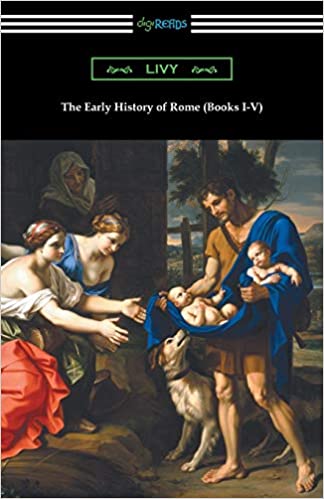
Livy’s magnum opus is a monumental history of Rome from its foundation to 9 BCE. Consisting of 142 books, only 1-10 and 21-45 survive complete. Books 1-5 cover the period from Rome’s foundation to the death of its seventh king, Lucius Tarquinius Superbus.
Livy begins his history with the tale of Aeneas, who, according to Roman legend, fled the burning city of Troy and eventually settled in Italy. He then goes on to describe the founding of Rome by Romulus, the city’s first king. The early years of Rome were marked by violence and bloodshed as the fledgling state fought for survival against its neighboring enemies.
However, under the leadership of men such as Lucius Junius Brutus, Rome gradually began to gain the upper hand.
Finally, in 509 BCE, Brutus expelled Tarquinius Superbus from power after he assaulted the virtuous Lucretia.
This event marks the beginning of the Roman Republic. Livy’s account of Rome’s early history is fascinating and provides insight into the origins of one of the world’s most powerful empires.
Domina: The Women Who Made Imperial Rome by Guy de la Bédoyère
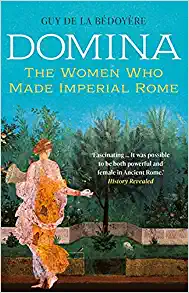
Domina: The Women Who Made Imperial Rome by Guy de la Bédoyère is a fascinating look at the lives of women in Ancient Rome. While much has been written about the great Roman emperors, de la Bédoyère brings to light the stories of the often-overlooked women who wielded power behind the scenes.
The book covers a wide range of topics, from the wives of Lucius Cornelius Sulla and Julius Caesar to the Empress Messalina and her infamous rival, Agrippina the Younger. Guy de la Bédoyère paints a vivid picture of life in Imperial Rome, highlighting women’s role in shaping its history.
Through their stories, we gain a greater understanding of the complex social world of Ancient Rome and how both men and women wield power.
Domina is sure to appeal to anyone interested in history or Roman culture.
The Ghosts of Cannae: Hannibal and the Darkest Hour of the Roman Republic by Robert L. O’Connell
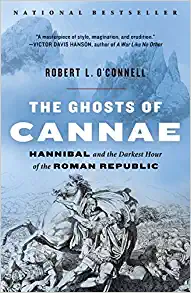
The Ghosts of Cannae is a detailed and engaging account of the Battle of Cannae, one of the most significant military engagements in history. In his book, Robert L. O’Connell not only tells the story of the battle itself but also delves into the larger context of the Second Punic War.
He paints a vivid picture of Hannibal, the brilliant Carthaginian general who led his army to victory at Cannae, and brings to life the Roman Republic, which was almost brought to its knees.
The Ghosts of Cannae is an essential read for anyone interested in military history, and it provides a fascinating glimpse into one of the darkest hours of the Roman Republic.
Cannae: Hannibal’s Greatest Victory By Adrian Goldsworthy
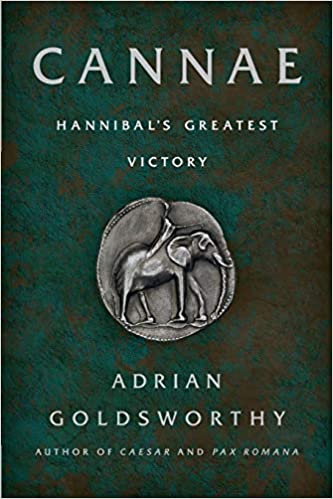
Adrian Goldsworthy’s Cannae: Hannibal’s Greatest Victory is a detailed and fascinating account of one of the most famous battles in history.
Using a combination of primary and secondary sources, Goldsworthy reconstructs the events leading up to and during the battle, providing readers with a comprehensive picture of what happened on that fateful day.
In addition to providing an excellent analysis of Hannibal’s tactics, Goldsworthy also offers readers insights into the motivations of both the Carthaginian and Roman armies.
As a result, Cannae: Hannibal’s Greatest Victory is an essential read for anyone interested in military history.
The Last Assassin: The Hunt for the Killers of Julius Caesar by Peter Stothard

The Last Assassin is a riveting historical account of the murder of Julius Caesar and the subsequent search for his killers. Stothard draws on a wealth of primary sources to reconstruct the events of that fateful day in 44 BC and vividly describes the tumultuous months that followed as Rome descended into civil war.
He also deftly traces the fascinating story of Brutus, one of Caesar’s assassins, whose own life ended in tragedy at the Battle of Philippi. The Last Assassin is a must-read for anyone interested in Ancient Rome and provides a fascinating glimpse into one of the most turbulent periods in history.
Daily Life in Ancient Rome: The People and the City at the Height of the Empire by Jérôme Carcopino
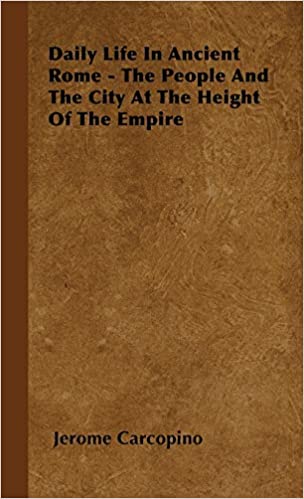
Daily Life in Ancient Rome: The People and the City at the Height of the Empire is a fascinating look at everyday life in one of history’s most iconic cities.
Jerome Carcopino expertly brings to life the people and places of Ancient Rome, painting a vivid picture of what it was like to live in this bustling metropolis.
Through his compelling narrative, we learn about the different social classes of Roman society and how they interacted with one another. We also get a glimpse into the religion and culture of the time and see how these influences shaped daily life.
This book on Roman history is an essential read for anyone interested in Ancient Rome, and Carcopino’s rich storytelling makes it an enjoyable and informative read from start to finish.
I, Claudius by Robert Graves
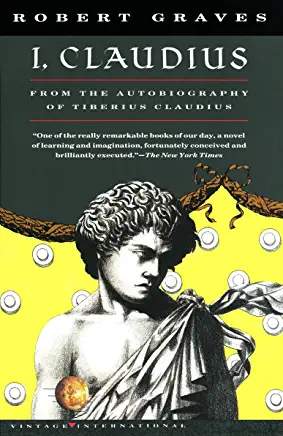
I, Claudius is a historical novel by Robert Graves, first published in 1934. The book tells the story of Roman Emperor Claudius, his life, rise to power, and eventual death.
The book is written in the form of an autobiography, and it covers the period from Claudius’ childhood to his death.
I, Claudius was an immediate bestseller when it was first published, and it has since been translated into numerous languages and adapted for television.
This book on Roman history is highly acclaimed by critics and historians alike, and it is considered to be one of Graves’ finest works.
Augustus: First Emperor of Rome By Adrian Goldsworthy
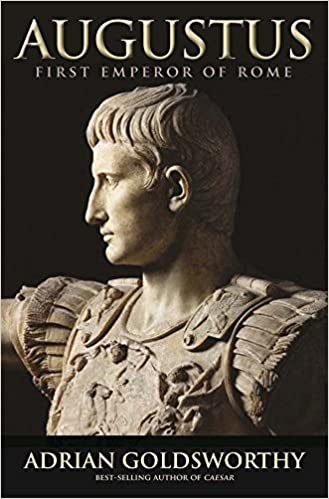
Adrian Goldsworthy’s Augustus: First Emperor of Rome is a masterful biography of one of history’s most important and influential figures. Goldsworthy carefully traces Augustus’s life from his childhood in a patrician family to his military campaigns and subsequent rise to power.
He paints a vivid portrait of the man, his character, and his motivations, providing readers with a nuanced understanding of why Augustus was so successful in consolidating power and creating the Roman Empire. Goldsworthy also does an excellent job of situating Augustus within the broader context of Roman history, making it one of the best Roman history books and essential reading for anyone interested in this fascinating period. Highly recommended.
Rubicon: The Last Year’s of the Roman Republic by Tom Holland
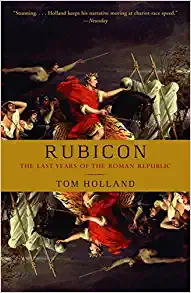
Rubicon: The Last Year’s of the Roman Republic by Tom Holland compellingly covers the last years of the Roman Republic, from the First Triumvirate to the death of Julius Caesar. Holland provides a detailed account of this period’s political and military events, as well as the social and economic conditions that led to the outbreak of civil war.
Through his gripping narrative, Holland brings to life the personalities and ambitions that shaped one of the most pivotal moments in history. Rubicon is essential reading for anyone interested in understanding the fall of the Roman Republic and the rise of the Roman Empire.
Pax Romana: War, Peace, and Conquest in the Roman World by Adrian Goldsworthy
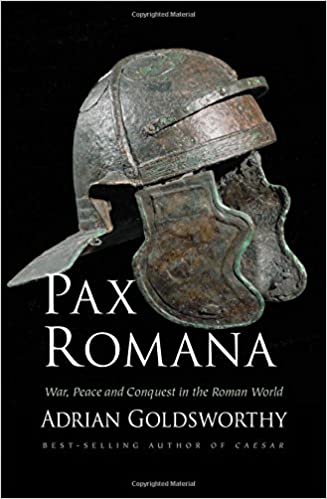
Adrian Goldsworthy’s Pax Romana is a detailed and comprehensive history of the Roman Empire during its period of peace and stability, from Augustus to Marcus Aurelius. Goldsworthy draws on many sources to provide a nuanced picture of Roman society during this time.
He highlights the vastness of the empire and the numerous challenges its rulers faced in maintaining peace and order. Goldsworthy also discusses how the Romans attempted to spread their culture and values throughout the empire.
The result is an authoritative and fascinating account of one of the most remarkable empires in world history.
Twelve Caesars: Images of Power from the Ancient World to the Modern by Mary Beard
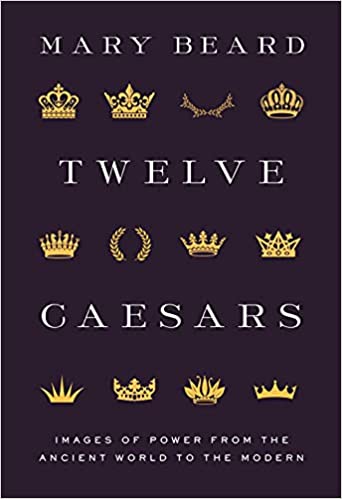
In her book Twelve Caesars: Images of Power from the Ancient World to the Modern, Mary Beard explores how images of the twelve Roman emperors have been used throughout history. Beard begins by tracing the origins of the twelve Caesars in Roman mythology and history.
She then goes on to discuss how these images were used in both ancient and modern times. For instance, she discusses how early Christians used the image of Nero as a symbol of evil and how Renaissance artists used the images of the Caesars to depict political power.
Ultimately, Beard shows how the images of the Caesars have been used to convey a range of messages, from warnings about tyranny to messages of hope and progress.
The Emperor in the Roman World by Fergus Millar
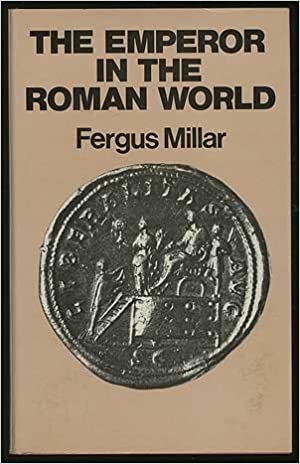
Fergus Millar’s The Emperor in the Roman World is a detailed and comprehensive examination of the role of the emperor in Roman society. Drawing on a wide range of sources, Millar shows how the emperor was both a political and religious figure and how this unique position allowed him to exert significant influence over the people of Rome.
In addition, Millar discusses how the emperor was often able to use his power to further his own agenda and how this could lead to conflict with other members of the ruling elite. Overall, The Emperor in the Roman World is an essential read for anyone interested in this period of history.
The Corrupting Sea by Peregrine Horden and Nicholas Purcell
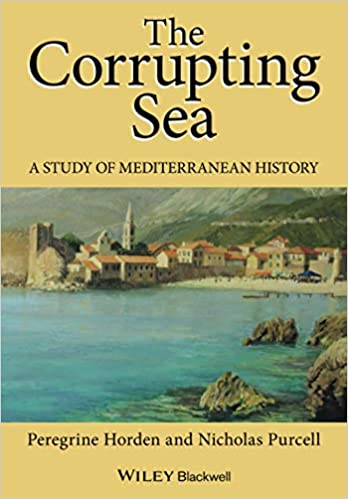
Peregrine Horden and Nicholas Purcell’s book The Corrupting Sea is a fascinating exploration of how the Mediterranean Sea has shaped the development of human civilization.
The authors trace the history of the sea from its earliest origins to its current state and examine how it has affected the cultures that have grown up around it.
They also look at how humans have changed the sea and how these changes have affected the development of civilizations. The Corrupting Sea is an essential read for anyone interested in the history and culture of the Mediterranean region.
History of the Decline and Fall of the Roman Empire By Edward Gibbon
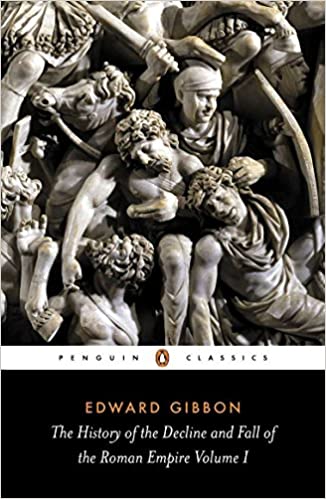
Edward Gibbon’s The Decline and Fall of the Roman Empire is one of history’s most famous and influential works. Published in six volumes between 1776 and 1788, it chronicles the decline and fall of the Roman Empire from the height of its power in the second century AD to its eventual extinction in the west by the early fifth century.
Gibbon’s work was hugely controversial at the time of its publication, both for its frankness about the decline of a once-great civilization and for its sometimes scathing criticisms of Christianity. Nevertheless, it became one of the most widely read works of history ever published, shaping our understanding of the fall of Rome for generations to come.
Cicero: The Life and Times of Rome’s Greatest Politician by Anthony Everitt
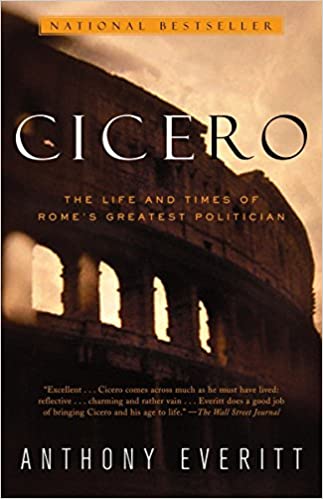
In his book, Cicero: The Life and Times of Rome’s Greatest Politician, Anthony Everitt presents a comprehensive and enlightening look at the life of one of history’s most influential figures.
Born in 106 BC, Marcus Tullius Cicero was a Roman statesman, lawyer, and philosopher who played a pivotal role in the transformation of the Roman Republic into the Roman Empire. Through his tireless advocacy for democracy and civil rights, Cicero became one of the most respected voices of his generation.
However, his opposition to the rise of Julius Caesar led to his exile and eventual death. Everitt’s book is a masterful biography that brings Cicero to life, vividly depicting his times and explaining his lasting impact on Western civilization.
The Greatest Roman History Books
Roman history is one of the most fascinating and well-documented periods of history. Whether you’re looking for a comprehensive overview or focus on a specific topic, there are plenty of great books about Roman history to choose from. We’ve listed some of our favorites, but we would love to hear from you. What are your favorite Roman history books? Let us know in the comments
